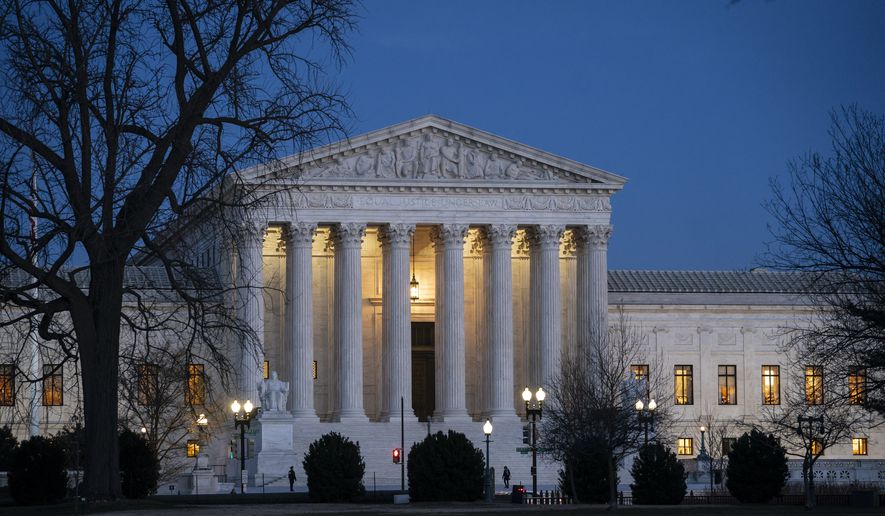Get ready for a busy and politically fraught week at the Supreme Court.
The justices will kick off the month of March by hearing arguments over the legality of the Consumer Financial Protection Bureau and a new challenge to abortion rights.
A case scheduled for Tuesday will test the separation of powers and whether the CFPB, which was created during the Obama administration and is the brainchild of Democratic presidential candidate Sen. Elizabeth Warren, runs afoul of the Constitution because its director is largely shielded from being fired by the president.
Created in 2010 by Congress through the Dodd-Frank Wall Street Reform and Consumer Protection Act, the CFPB aims to tighten controls on the financial sector including banks, securities firms, mortgage lenders and credit unions. It enforces nearly 20 consumer protection laws.
The agency’s director is removable by the president only for cause. Opponents of the agency argue an independent institution exercising executive authority runs afoul of the Constitution and the three branches of government.
Seila Law, a firm that represents consumers, had been subject to a civil investigation by the CFPB but refused to turn over documents, arguing the agency was illegal.
A district court sided with the CFPB in upholding its demand for the documents and the 9th U.S. Circuit Court of Appeals agreed, citing a ruling from the federal appeals court in Washington upholding the legality of the CFPB.
After several legal challenges to the institution, the Supreme Court decided to hear the law firm’s appeal.
The Trump administration, meanwhile, argues an agency head should be able to be terminated at will, not just for cause.
“Vesting executive power in a single person not answerable to the president ‘does not merely add’ to the intrusion on executive authority, ‘but transforms it,’” the administration’s lawyers argue in court documents.
Alan Kaplinsky, a lawyer at the Ballard Spahr law firm, said the government essentially did a complete reversal on the issue. Paul Clement, a well-known Washington attorney who has argued before the high court about 100 times, will be arguing in defense of the constitutionality of the CFPB.
“It’s a really important case but what would be of monumental importance would be if the court should hold the statute is unconstitutional and decide to throw out the whole statute. That would be chaotic,” Mr. Kaplinsky said.
He added that if a Democrat were to be elected president in November and allowed to appoint whom he or she wants to lead the CFPB, it would likely be someone more hostile to the consumer finance industry.
The justices this week also will grapple with a Louisiana law that adds restrictions on abortion providers.
The state law being debated requires doctors performing abortions to have admitting privileges at a hospital no farther than 30 miles from the women’s clinic.
The high court, in a 5-4 move, halted the law from taking effect this year. Chief Justice John G. Roberts Jr. sided with the four justices who were appointed by Democrats.
Abortion providers have challenged the legislation, saying it resembles a Texas law that the high court struck down in a *5-3 ruling three years ago. In that case, Justice Anthony M. Kennedy, who has since retired, sided with the more liberal wing and Justice Roberts voted to uphold the restrictions.
*Denise Harle, senior counsel with the religious liberty law firm Alliance Defending Freedom, said the case is a chance for the high court to correct or “narrow” the earlier ruling.
She also said it gives the justices a chance to tell abortion providers they cannot bring cases on behalf of women’s health rights, arguing that it should be up to the patients to sue.
“That’s going to be really significant,” she said.
A decision in both cases is expected by the end of June.
* (Correction: An updated version of the story fixed the spelling of Denise Harle’s name and provide the correct vote from a high court ruling three years ago.)
• Alex Swoyer can be reached at aswoyer@washingtontimes.com.




Please read our comment policy before commenting.